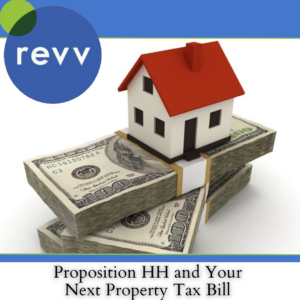 County assessors mailed last week out their new property assessments and the assessors are reporting a median gain in home values of a low of 33% in Denver County to as high as 47% in Douglas County.
County assessors mailed last week out their new property assessments and the assessors are reporting a median gain in home values of a low of 33% in Denver County to as high as 47% in Douglas County.
Here is how property tax bills in Colorado are calculated—
· County Assessor sets your Assessed Value, the State Legislature sets the Assessment Rate, and local counties, cities, and other tax districts set their own Mill Levy Rate.
· Assessed Value x Assessment Rate (currently 6.95% for 2022 taxes paid this year) x Total Mill Levy and the total mill levy varies in every county and locality. I will use 100 mills for my example. The Assessment Rate is scheduled to be 7.15% for 2023 paid next year.
· 2021 Assessed Value of $400k x 6.95% x 100 mills = $2,780 tax bill paid this year.
· 2023 Assessed Value of $560k (40% increase) x 7.15% x 100 mills = $4,040 tax bill paid next year, a 45% increase.
The State Legislature is legally responsible for setting the state-wide Assessment Rate annually, but they punted on their responsibility. They could have lowered the Assessment Rate from 7.15% to a lower rate to keep our property taxes from increasing so much and they chose NOT TO DO THEIR JOB!.
Instead, they and our Governor will put Proposition HH on the November ballot for us to vote on. This Proposition would lower the Assessment Rate as follows—
· For 2023 taxes—6.765% of the assessed value less $40k.
· For 2024 taxes—6.7% of the assessed value less $40k.
· For 2025-2032 taxes—6.7% of the assessed value less $40k on primary residences only. Second homes and rentals lose the $40k in lower assessed value.
· For 2025-2032 taxes for Qualified Seniors—on their primary residence the assessment rate will be 6.7% of the assessed value less $140k.
In my example above your $560k assessed home value would have a 2023 property tax bill of ($560k less $40k x 6.765% x 100 mills) $3,517 if Proposition HH passes. Thus, your property tax bill would only increase by $737 in 2024 versus what you paid this year for 2022 taxes, which makes your property tax bill increase at 27%. But, if Proposition HH doesn’t pass your tax bill would be $4,040 as shown above.
Our Legislature could have done this all by themselves. So, why is Proposition HH going to be on the ballot? They want to increase the revenue cap or our taxes the state receives by limiting our Tabor tax refunds by 23% on average I have read. Then, the State will “backfill” the missing tax revenue for our local counties, cities, and other taxing entities such as schools, police, fire, etc receive. But, is this money really missing?
For most homeowners their biggest tax bill comes from local schools. Let’s say this Mill Levy is 40 Mills. This year they received from you using my example above $400k x 6.95% x 40 Mills or $1,112.
If Proposition HH passes your school district will receive $560k less $40k x 6.765% x 40 Mills) or $1,407 or $295 MORE from you. So, your school district will still receive extra money from every homeowner. What money is missing?
If Proposition HH doesn’t pass then your school district would receive ($560k x 7.15% x 40 Mills) or $1,601 or an additional $196 in my example. The Legislature and our Governor want to give them this additional $196 by reducing our Tabor tax refunds if Proposition HH passes.
This is why Proposition HH will be on our November ballot as an extra $295 in property taxes isn’t enough for them. They want to give your school district in my example an extra $489 in total and ask us to vote to reduce our Tabor tax refunds to do this. Every taxing entity will be impacted in this way.
Finally, knowing that your property taxes are going to increase, what should you and your clients do? I am going to use a different example so that the numbers are easier. Let’s say your tax bill this year for 2022 is $3600 and you estimate your tax bill next year will be $4800 or a $100 month increase.
Here is how your escrow account should look next year assuming your escrow account was properly funded this year except for this tax increase and that your homeowner’s insurance doesn’t increase—
· Your escrow account will be short this $1200.
· Your loan servicer will need to collect an additional $1200 for 2023 taxes to be paid in 2024 from you.
· Third, your loan servicer needs to refill your escrow account with 2 months of your new tax bill at a minimum which is another $800.
Thus, your escrow account will be short at least $3,200 in this example. And your monthly payment will increase by a minimum of $100 a month for this tax increase. This is the best-case scenario.
Your loan servicer will give you 2 choices typically. First, send a check for $2,000 and your monthly payment increases by $100 a month. Second, if you don’t send them a check for $2,000 your loan servicer needs to collect an additional $3,200 from you over the next 12 months or an additional $267 a month from you as part of your mortgage payment. Can you afford this big payment increase?
So, what should you do? First, BRACE for a monthly payment that increases by $267 a month at least. OR start saving $2,000 in a special savings account. You will need this extra $2,000 saved by first quarter of next year. And still your monthly payment will increase by at least $100 a month in this example.
